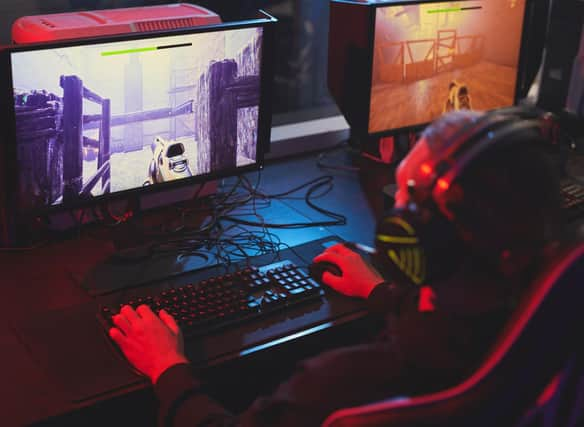How online gaming is providing a sense of community for Scotland's shielders


Since the beginning of the Covid crisis and the first lockdown back in March last year, we’ve been forced to find new ways to communicate to fill the gap between face-to-face contact, from personal experience this felt even more difficult as a shielder.
Gaming was an outlet. It’s what millions of Brits turned to, as new virtual communities were formed. I was one of them.
Advertisement
Hide AdAdvertisement
Hide AdAccording to figures released by Statista in January this year, the growth of digital game sales in the UK is at its highest ever. During the national lockdown, 2020 sales increased by £506.8 million compared to the previous year.
‘A sense of belonging’
For disabled shielders like me who were told to stay in their homes during the crisis, it isn’t as simple as picking up a controller when you have more complex needs and it’s why accessibility in gaming is so important.
Online gaming allowed me to keep in contact with my mates and feel a sense of belonging at a time of great insecurity.
It’s a common theme for gamers and that sense of belonging is vital for most of us. That feeling of shared experience while playing a game that could take you to different worlds is unique. It allows people to lose ourselves and forget about our day-to-day problems and anxieties especially at a time when millions were unsure about the future and it’s why developers must ensure their products are accessible to all.
Top of the agenda
Small adjustments to game settings from designers can make all the difference, from more toggle options to keybind options, remapping and a mixture of difficulties on different aspects of the game can all make games more accessible to millions that wouldn’t otherwise be able to play. It creates a level playing field for all taking part. Multiplayer and co-op games mean that anyone can be competitive regardless of the health situation.
Without a chance to access these games, developers are making it even tougher to reach those with disabilities across the spectrum. Settings for those who are blind or partially blind are equally important and this must become top of the agenda for now and future generations of games across all platforms.
Developers need to make this a priority, or we risk losing the whole reason and essence of gaming – bringing people together.
We need to forget the days of ‘video games being dangerous’ and move forward, allowing us to spend more time thinking of access. It’s unfair to suggest that developers aren’t trying - games like the Last of Us 2 and Spiderman: Miles Morales show act as a benchmark.
To make a real difference we need continued development and accessibility testing.
Here’s hoping developers listen.